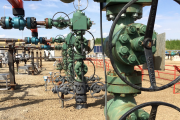"The integrity of climate research has taken a very public battering in recent months. Scientists must now emphasize the science, while acknowledging that they are in a street fight."
So begins a recent editorial in Nature, one of the world's most respected multidisciplinary scientific journals. We couldn't have said it better.
While the evidence of human-caused climate change (and its serious consequences) has only continued to strengthen since the publication of the Intergovernmental Panel on Climate Change's Fourth Assessment Report in 2007, recent events have attracted media attention to what Nature refers to as a "re-energized community of global-warming deniers." And in this arena, they warn, it is not by any means an even fight:
"Most researchers find themselves completely out of their league in this kind of battle because it's only superficially about the science. The real goal is to stoke the angry fires of talk radio, cable news, the blogosphere and the like, all of which feed off of contrarian story lines and seldom make the time to assess facts and weigh evidence. Civility, honesty, fact and perspective are irrelevant."
"The core science supporting anthropogenic global warming has not changed. This needs to be stated again and again, in as many contexts as possible."—Nature, 11/3/2010
As an organization that values civility, honesty, fact and perspective, we felt it was extremely important to assess recent claims in a sober light. In doing so we hope to provide a means for returning these values to the public debate on climate change.
Here is a pocket-sized summary of what we found. Our full report is available here.
- Yes, the e-mails stolen from the Climatic Research Unit at the University of East Anglia reveal that scientists are human beings, sometimes rude and often frustrated by critics that they see as seeking to undermine their work. But no, they do not show any attempt to fake the science or run a global cabal. Numerous reviews to date have junked these claims. Climate change is still real.
- Following the release of the e-mails, senior Environment Canada scientists advised the Minister of the Environment that "the department continues to view the IPCC [Fourth Assessment Report] as the most comprehensive and rigorous source of scientific information for climate change negotiations."
- Yes, the IPCC made an error about the projected rate of glacial melting in the Himalayas deep in the body of its 1000-page Working Group II report. Yes, this highlights a poor application of the IPCC's very robust (and very transparent) review procedures. No, this does not have any significant bearing on state of climate science or affect any other conclusions in the IPCC report. And yes, the glaciers are still melting.
- Yes, there have been other allegations made about IPCC errors. With the exception of a trivial error on the percentage of the Netherlands below mean sea level (due to an incorrect figure provided by a Dutch government agency), these turn out not to be factual errors at all. Claims of an error related to drought in the Amazon highlight a particularly unsettling case of poor journalistic practice.
- Yes, claims of global cooling are nonsense, as are claims that global warming has stopped.
The essential question is whether these recent events have impacted the case for, or the urgency of, reducing greenhouse gas emissions.
 Download our backgrounder on the recent climate science controversies.
Download our backgrounder on the recent climate science controversies.
The answer is no.
Neither the e-mails nor the glacier error alter the core conclusions of the IPCC's Fourth Assessment Report that the "warming of the climate system is unequivocal" and that most of the observed warming in the past half-century is more than 90% certain to have been caused by greenhouse gases from human activities. As 18 leading American science bodies noted in an open letter to Congress in October 2009, "[t]hese conclusions are based on multiple independent lines of evidence, and contrary assertions are inconsistent with an objective assessment of the vast body of peer-reviewed science."
Nor do recent events alter the joint conclusion of the National Science Academies of all G8+5 countries that "climate change is happening even faster than previously estimated" and "the need for urgent action to address [it] is now indisputable."
As the street fight continues, rapid reductions in greenhouse gas emissions remain as important as ever.








